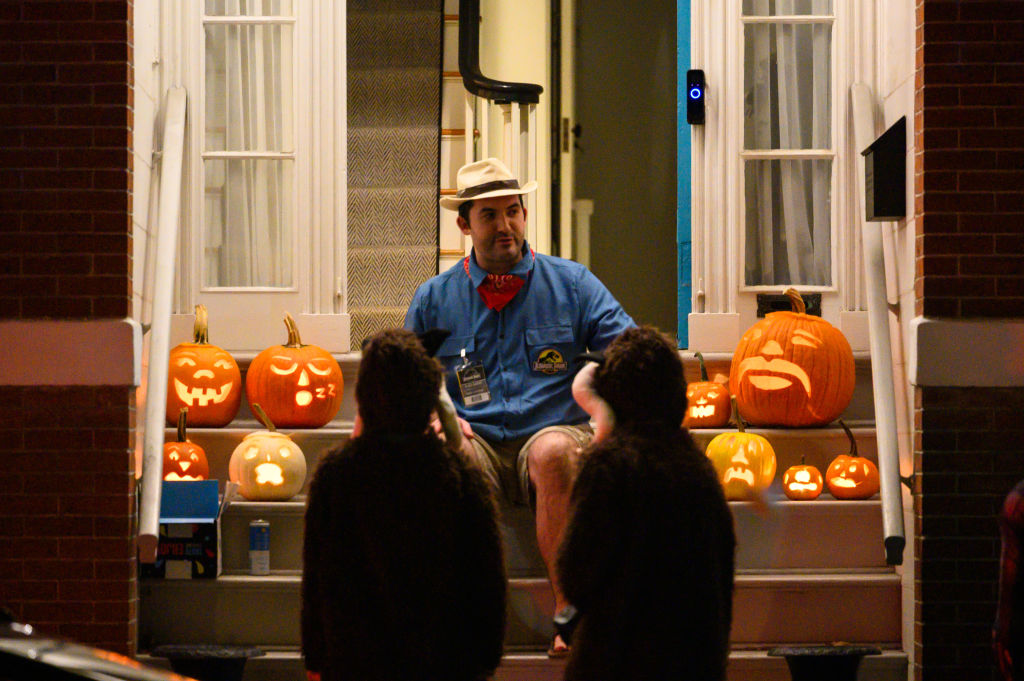Trick or Treat—or Don’t
My parents disliked the Halloween practice of soliciting neighbors for candy, and for good reason.

Among all of the Halloweens of my youth, I can recall only two during which I went trick-or-treating.
The first such Halloween fell when I was in the second grade and was undoubtedly feeling pressure from peers to participate in this autumnal rite of passage. The second came several years later when I was homeschooled and, thus, ignorant of the opinions of my classmates, since, by then, I had none. Perhaps I just wanted to make one last attempt at finding the good, wholesome fun in demanding free candy from neighbors.
My parents, though, saw little good or wholesome about the practice. My father—tough-minded, all-business, not one to get caught up in the enthusiasms of kids, including his own—was simply indifferent to trick-or-treating. My mother, on the other hand, had been scarred by her youthful experiences of the holiday. She hated Halloween—not on religious or puritanical grounds but on economic ones. By her account, her parents declined to make or invest in elaborate costumes, and she felt her gypsy costume—or “costume”—was not only cheap but insufficiently identifiable. As we all know, the most terrifying question a kid can be asked on Halloween is: “And what are you supposed to be?”
In my case, though, I think my parents felt that trick-or-treating presented a set of unnecessary and preventable risks that they were unwilling to let me take merely in the name of peer group conformity. The obvious dangers—cars pulling into and out of driveways, unchained dogs, school bullies disguised as vampires or vagrants—were simply not worth encountering in exchange for the promise of candy that could have been occupying a neighbor’s pantry for untold weeks, months, or even years. On the rare occasions when I expressed an interest in trick-or-treating, my mother would invariably present me with the following rhetorical question: “Why would you want candy that has been sitting around in someone’s house?” I think she felt there was something faintly pitiful about begging someone for candy—as though the beggar didn’t have parents willing or able to buy their own candy. It promoted a kind of confectionery welfare state.
Growing up, then, my main notion of what trick-or-treating was like came from movies: the scenes on Halloween night in E.T. the Extra-Terrestrial or Meet Me in St. Louis. You might call my parents overprotective.
So, for years and years, in the absence of trick-or-treating, my parents recreated Halloween within the confines of our house. Each October, they permitted my younger brother and me to buy umpteen bags of candy that were not meant to be doled out to door-knockers but consumed, on the night in question, at home in front of the TV. Importantly, my parents’ prohibition on trick-or-treating worked both ways: Just as I was not allowed to go trick-or-treating, my parents declined to acknowledge the entreaties of trick-or-treaters. In other words, they did not hand out candy.
In fact, the candy bonanza that took place in our home each Halloween was generally conducted in the dark: My parents reckoned that a house whose lights had been switched off would communicate our nonparticipation in trick-or-treating. Of course, this did not make us particularly popular in neighborhoods with young families. (Is that why we moved so often?) It also did not deter all trick-or-treaters, especially older, obnoxious ones, some of whom just knocked with greater intensity and persistence.
And what of my two actual trick-or-treating experiences? My recollection is that my first time trick-or-treating was surprisingly fun, though I must admit that most of the time I was focused on rounding the cul-de-sac as quickly as possible so I could be home in time to watch The Simpsons’ “Treehouse of Horror” episode. My second trick-or-treating adventure was a complete bust: Despite my earnest efforts, my plastic pumpkin was not even half-full, and what I had gathered looked cheap and stale—confirmation, for my mother, of her distaste for the holiday and its trappings. Fortunately, my parents had purchased their own bags of candy as backups. The treats procured through trick-or-treating were likely headed for the trash. Tellingly, I have no recollection of my costume during either of my excursions as a trick-or-treater. Even as a kid, I felt that wearing some “scary” outfit was slightly beneath my dignity.
This exercise—celebrating Halloween privately rather than communally—was part and parcel of my parents’ approach to many holidays: On the whole, they were not ones to go to Christmas parties, New Year’s Eve get-togethers, or fireworks on the Fourth of July. Maybe they were homebodies or perhaps just a bit reserved, but above all I think they simply felt it was better to spend time together than among anonymous revelers.
If I have children of my own one day, I will be hard-pressed to break with family tradition. Bust out the candy, cue up the scary movies, but no harassing of the neighbors on Halloween night.
The post Trick or Treat—or Don’t appeared first on The American Conservative.

